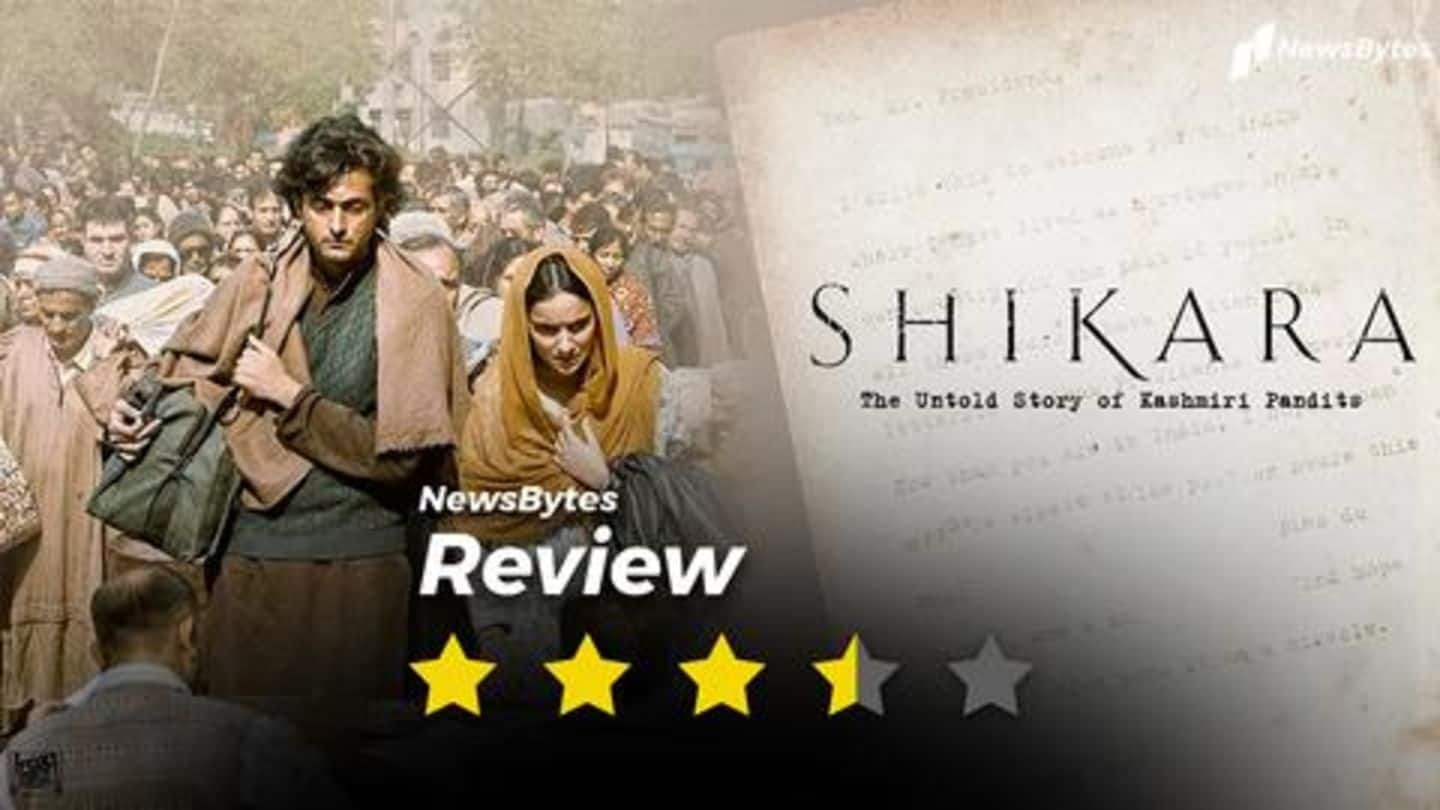
'Shikara' review: A beautifully crafted tale of an unforgettable tragedy
What's the story
In one particular scene of Shikara, a Kashmiri militant tells his best friend, a Kashmiri Pandit, "Mai apne abba ko nahi bacha paya, tu apne abba ko bacha le, India chala ja." It's the beginning of a catastrophe, but more than that, it's the moment where organized hatred would start overshadowing indivisible love. It is Vidhu Vinod Chopra's return to direction. Here's our review.
Information
'Shikara' inspired from 1989-1990 exodus of Hindus from Kashmir
Coming from Srinagar-born Chopra, Rahul Pandita and Abhijat Joshi, Shikara is based on the 1989-1990 forced exodus of Hindus residing in Kashmir Valley by Islamist insurgents and militant groups, that left thousands of Hindu families homeless within months.
Details
It starts with a Kashmiri professor's incessant pleading
Shikara opens in present-day India, and introduces us to Dr. Shiv Kumar Dhar (Aadil Khan), a professor, who has penned more than thousand letters over the course of 28 years, to various American presidents, pleading all of them to curb the supply of arms and bring peace in the world. But he has never received a single reply, until one day.
Details
Shiv's letter is finally accepted by a visiting US President
One fortunate day, Shiv's letter is accepted by a visiting US president, who invites him and his wife Shanti (Sadia) to Agra. In Agra, the couple is greeted in an opulent suite in a fancy hotel. Shanti, clearly astonished by the lavishness of it all, utters, "Yeh suite toh hamare quarter se bhi bada hai". But they didn't always live in a quarter.
Story
Shiv and Shanti's life marred by a fateful day
Things were different and better for Shiv and Shanti decades before. They had a lovely home in Kashmir, which Shanti had named Shikara. They were a supportive, loving family. Shiv used to teach at a Srinagar college. But their happiness and peace was permanently marred on a fateful January day in 1990, when the Kashmiri insurgency reached its peak.
Story
A tale of families, friends, and hopes coming apart
After January 19, 1990, the Valley changed forever, it's home to destruction, with militants torching down the houses of Hindus, killing them, and forcing them to vacate their own homes. In that sense, Shikara is a tale of families, friends, and hopes coming apart because of religious hatred. But, the pertinent question is - after decades, are the issues engulfing India still the same?
Performances
Newcomers Aadil and Sadia put all-heart performances
Aadil Khan as the vulnerable yet intense Shiv gives his everything to this role. He puts such honesty and freshness to the portrayal of a man deeply mired in a gut-wrenching tragedy, that it's hard to believe that it's the first time he is appearing on the big screen. And while Saida as Shanti is inconsistent, it's her all-heart performance that makes the difference.
Details
Zain Khan Durrani steals every single frame he gets
The decision to go with fresh faces in a film like this is a winning shot. On that note, another noteworthy performance is by Zain Khan Durrani, who as Lateef, Shiv's best friend and later a dreaded militant, steals every single frame he is in. Further, the soul-soothing score by AR Rahman and Qutub-E-Kripa lends a sense of calm and beauty to the narrative.
Details
The longing to return home never leaves Shiv and Shanti
After they are forced to leave Kashmir, Shiv and Shanti start residing in refugee camps in Jammu. And while life does steadily get better for them, as they later move to an eight-by-eight quarter, the longing to return to the Valley never leaves them, which is the case for many real-life refugees who continue to live in such refugee camps. Rating: 3.5/5 stars.